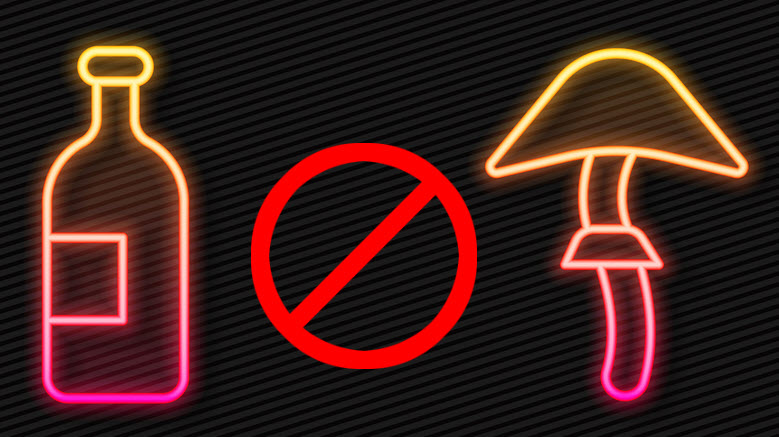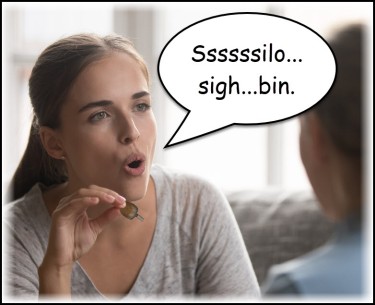
Can Psychedelics Help Alcoholics Quit Alcohol? New studies on psilocybin and alcoholism have just been published
Thanks to the pandemic, the need for adequate treatments for alcohol addiction has become more urgent than ever. Alcohol-related deaths were found to have increased during the pandemic, according to a major study published earlier this year. A total of 99,000 alcohol-related deaths were recorded in 2020, a 25% increase compared to the previous year. This number shows that in 2020 more non-elderly adults died from alcohol than Covid.
In all honesty, this public health situation is not new—alcohol use and addiction has been growing exponentially in the United States for many years. Between 1999 and 2017, alcohol-related deaths increased by 100%, a major reason why life expectancy fell over that period. However, adequate treatments are still proving difficult. But as it stands, Ralph Gerber and several other scientists and therapists believe psychedelics can work their magic for alcohol addiction.
According to the latest report, approximately 15 million adults living in America struggle with alcohol addiction. Many have tried but have not found an effective therapeutic approach to solving their addiction. However, Gerber has always raved about psychedelics and their emotional effects, which helped him overcome his alcohol addiction. Now, for the first time ever, an international multidisciplinary collaboration has revealed a similar mechanism behind psychedelic treatment.
International multidisciplinary research
Led by a neurobiologist from the Central Institute of Mental Health, Marcus Meinhardt, the researchers discovered how psilocybin repairs the brain’s molecular circuitry in alcohol abusers. Therefore, helps reduce relapses.
Many cocaine, nicotine and alcohol addicts show damage to mGluR2, a specific glutamate receptor. Simply put, Meinhardt defines the mGluR2 as an antenna that receives signals from the brain. When these signals are not received or processed, people begin to exhibit certain behavioral patterns, such as cravings for alcohol. However, with psilocybin, Meinhardt believes the reception can be repaired and made functional again.
From the experiment, Meinhardt used a single dose of psilocybin in rodents, which was enough to change their behavior. If the test results can be reproduced in humans, it would be a major breakthrough in addiction therapy. Considering that many adults take prescription pills daily, using psilocybin would be a huge hit.
However, there is a need for more research to determine the long-term effects of psilocybin and any side effects on the brain. In fact, there are still so many unanswered questions that need to be satisfactorily answered before psilocybin is legalized for medicinal use.
To provide answers to these questions, Meinhardt is looking forward to starting human trials in his next study. To provide all the tools and information Meinhardt needs, his university has been collaborating with three others in Italy, France and Switzerland since 2018. The focus was mainly on discovering psilocybin’s perspective on alcohol addiction.
The core research
In the human study, 60 alcoholic patients were brought together to study the effects of psilocybin on alcohol addiction. The study was initiated by one of Meinhardt’s colleagues, the neuropsychologist at the University of Zurich, Katrin Preller. Although the results have yet to be published, she confirmed that they are very promising. Prior to this study with alcoholics, she had conducted similar studies with depressed patients, which were very successful. She believes the results for alcohol abusers have similar outcomes as they draw to the end of the study.
However, she clearly admits that despite her experience in the field, there is still much to learn about the effects of psychedelics on the brain. She went on to say that more extensive and controlled research is needed before concluding on an effective therapy. But the reality is that it has been very difficult to conduct such research in the last 3 decades. Also, one of the problems with psychedelics is that patients can always tell if they were getting the real drug or placebos.
Meanwhile, respected universities such as UCLA, Yale, and the Johns Hopkins School of Medicine have confirmed early signs of success, pointing to the positive and lasting changes of psychedelics.
According to Roland Griffiths in an interview with Scientific American, one of the incredible features of psychedelics research is their potential transdiagnostic applicability. Griffiths was involved in several psychedelic researches evaluating psilocybin as a treatment for depression, alcohol and nicotine addiction. At John Hopkins, about two-thirds of patients treated with psilocybin described the experience as meaningful.
Is legalization too early or not?
At the moment, cities like Washington, DC, Oakland, and Denver have legalized the use of psychedelics for medical purposes, and several states (California, for example) have announced they will follow suit. Despite this, the drug remains illegal under federal law. In Switzerland, doctors can also call for the compassionate use of psychedelics for addiction, post-traumatic stress, and depression.
In any case, psilocybin and LSD have been hailed as miracle drugs in the past, especially when Timothy Leary, a Harvard psychologist, inspired his followers to use psychedelics. Now several old psychedelic gurus are reviving the research that took place in the 1960’s, but with a focus on medicinal uses rather than spirituality. With the founding of MAPS, Rick Doblin has now uncovered a huge passage for legalization as research seeks arguments to change the laws.
While Meinhardt is well acquainted with both new and old research, he is unwilling to raise public expectations. Meinhardt believes that consumers and scientists working with psychedelics were too ecstatic at the time, so they went underground when LSD became illegal in the 1970s, leading to funding being cut off. He continued that lessons must be learned from such mistakes and researchers should focus on the research and come to a solid conclusion before considering legalization.
Because as the hype around psychedelics continues to grow, they are not without risks. Psychedelics are known to induce psychosis, irregular heartbeat, and high blood pressure. As a result, much of the current research does not include patients with hypertension, schizophrenia, or heart problems. Also, well-curated experiments are always distinct from supervised use of psychedelics at festivals or parties.
Conclusion
Currently, more and more people are calling for the legalization of psychedelics, especially as alcoholism is rampant and sending people to an early grave. Aside from that, psilocybin’s non-addictive nature has also led to it gaining attention among American citizens. Now that psilocybin is being associated with the treatment of alcohol addiction, its popularity and use can be said to continue to increase.
MORE ABOUT PSILOCYBIN, READ THIS…

WHAT IS PSILOCYBIN AND WHY DO PEOPLE TAKE IT?

Post a comment: